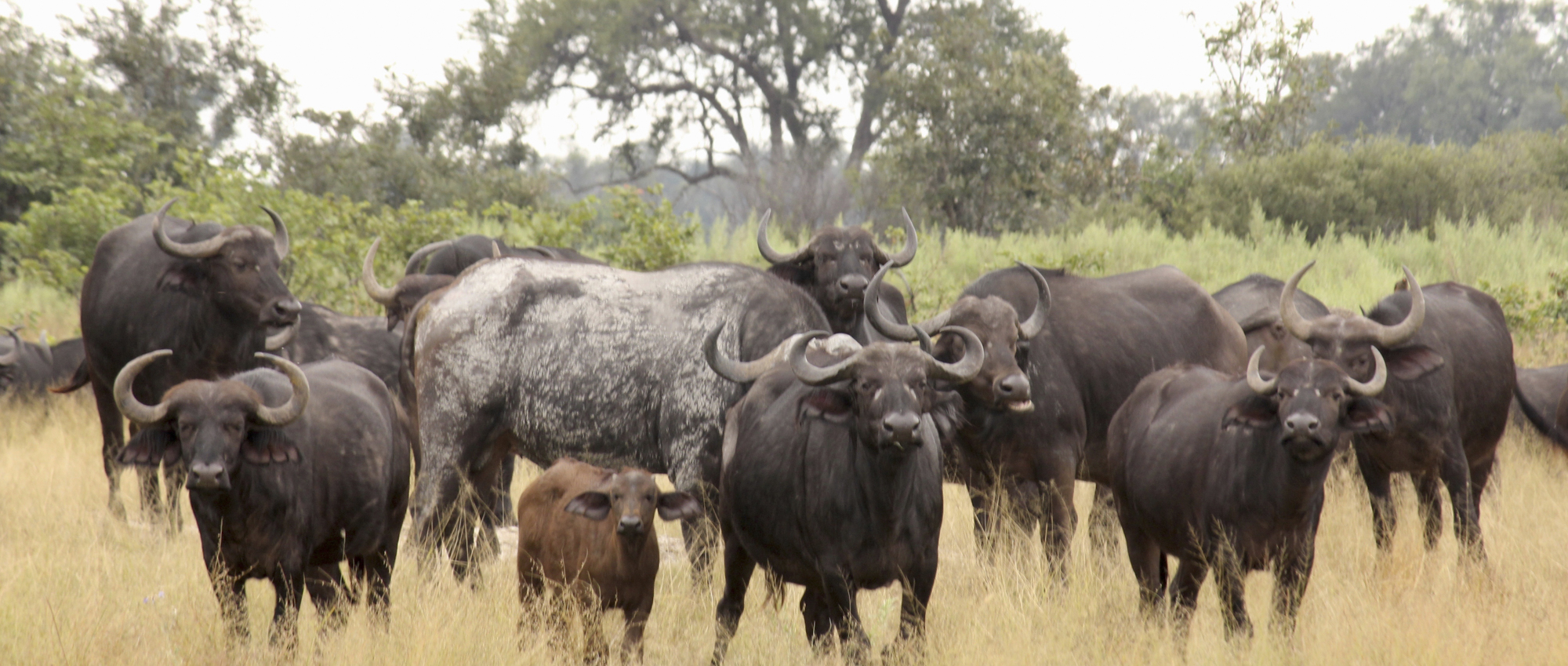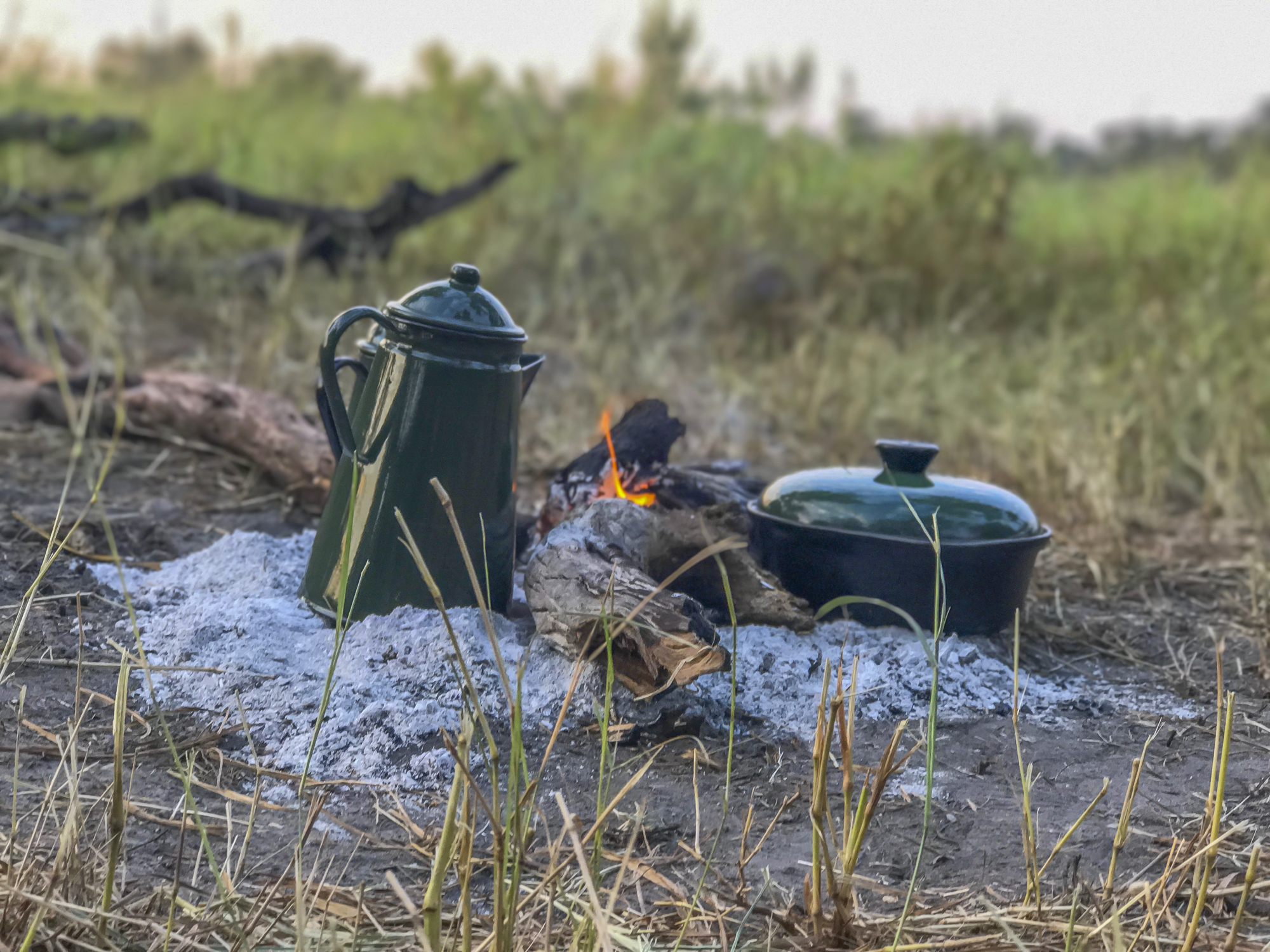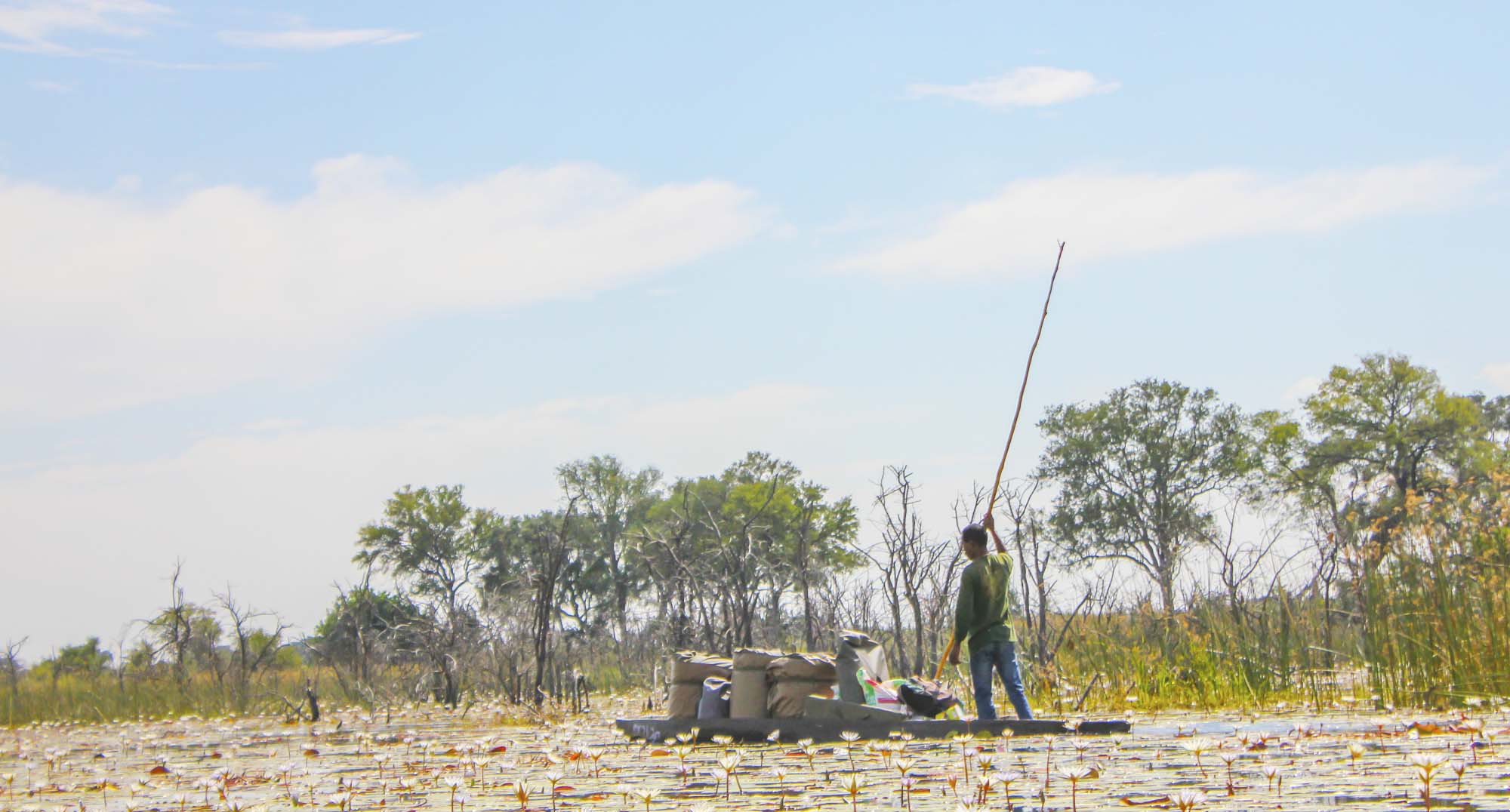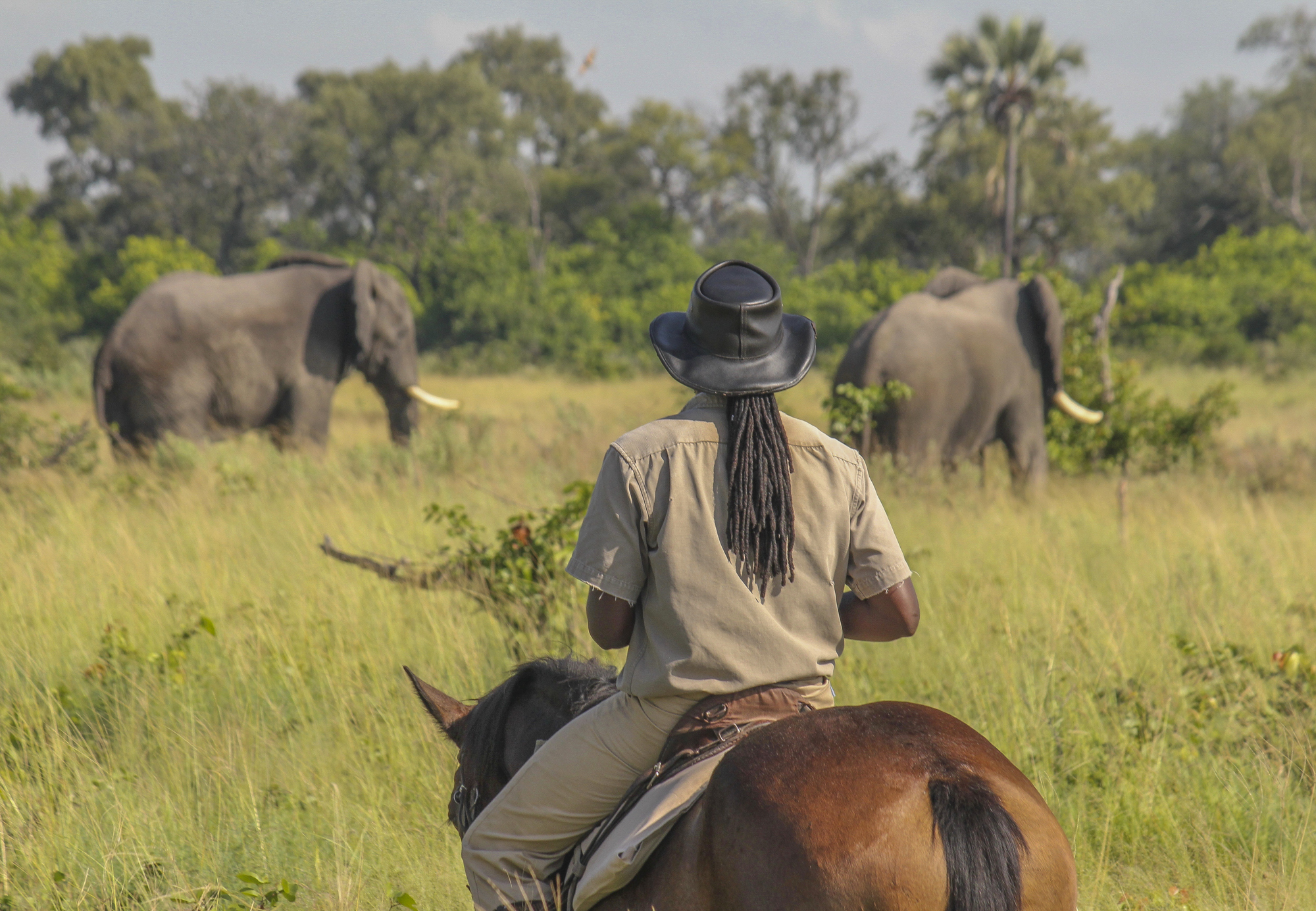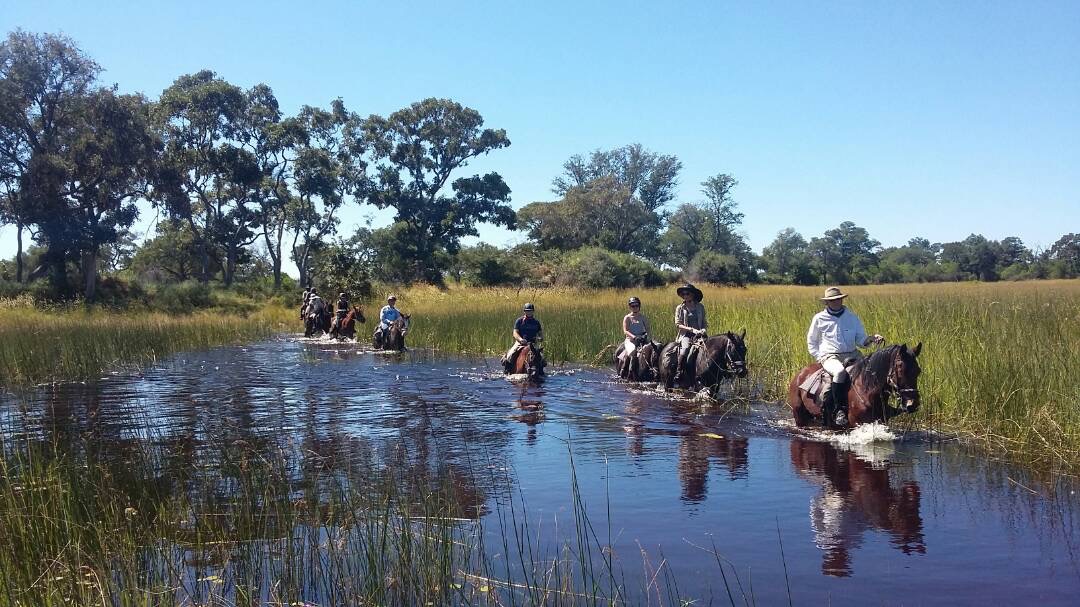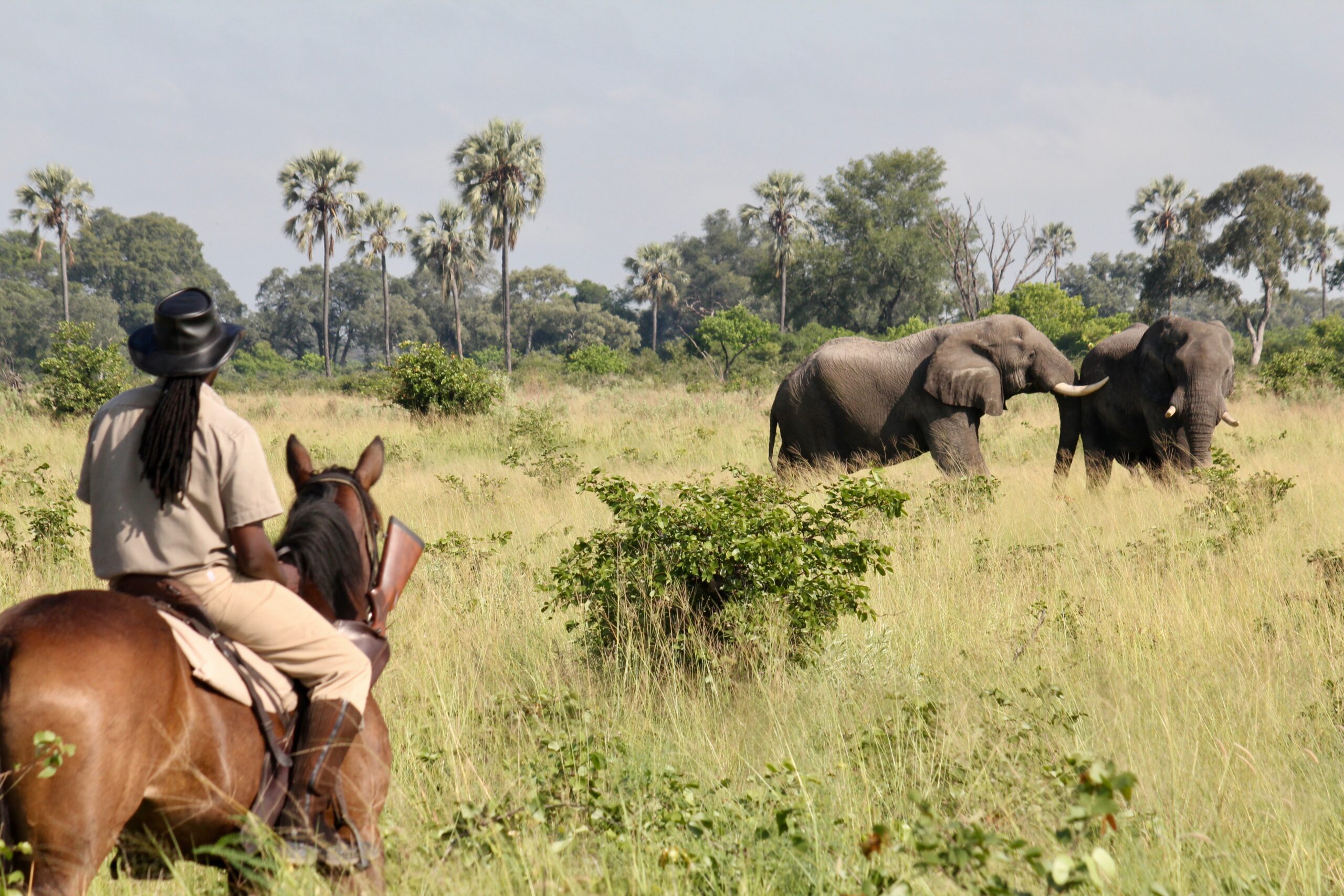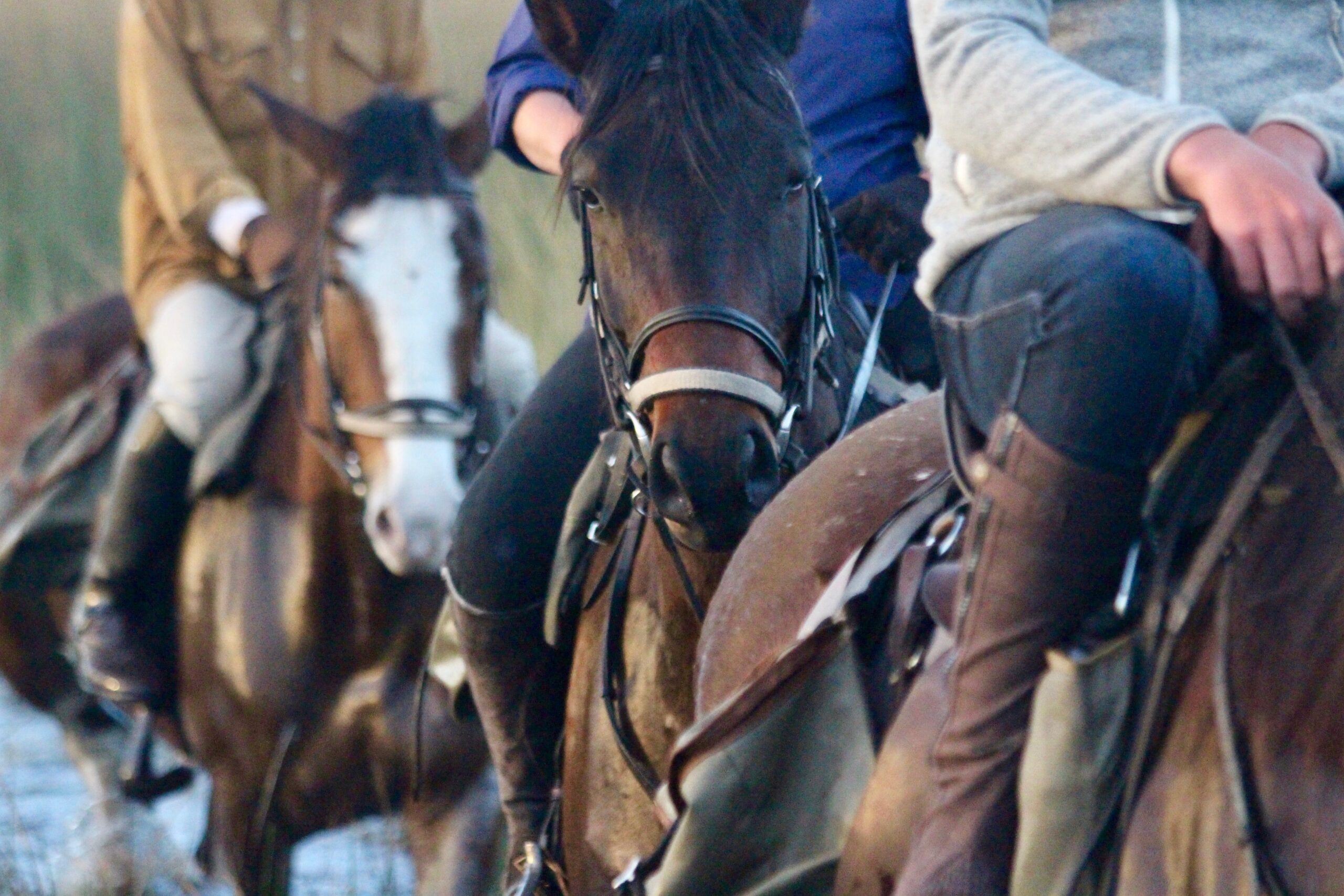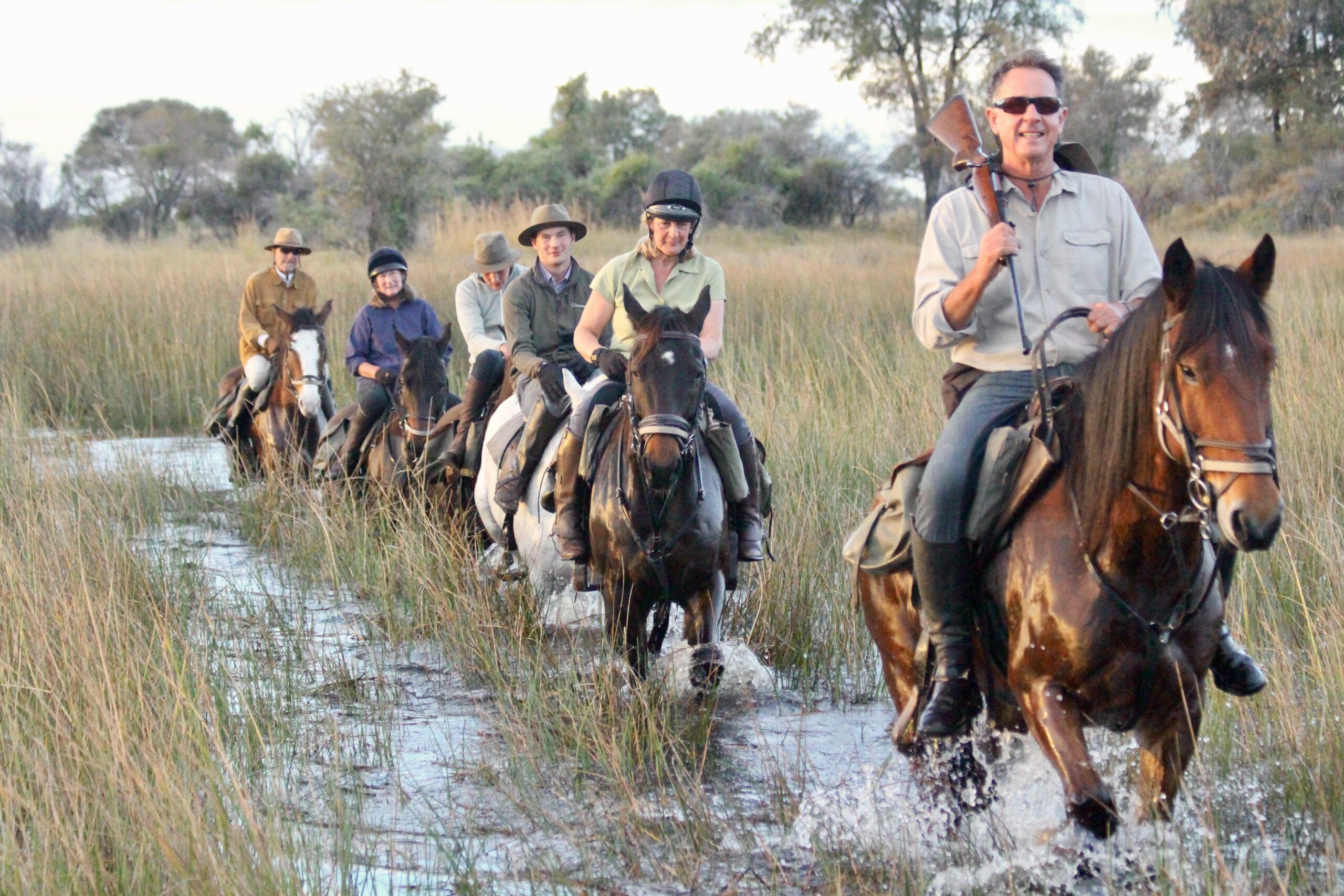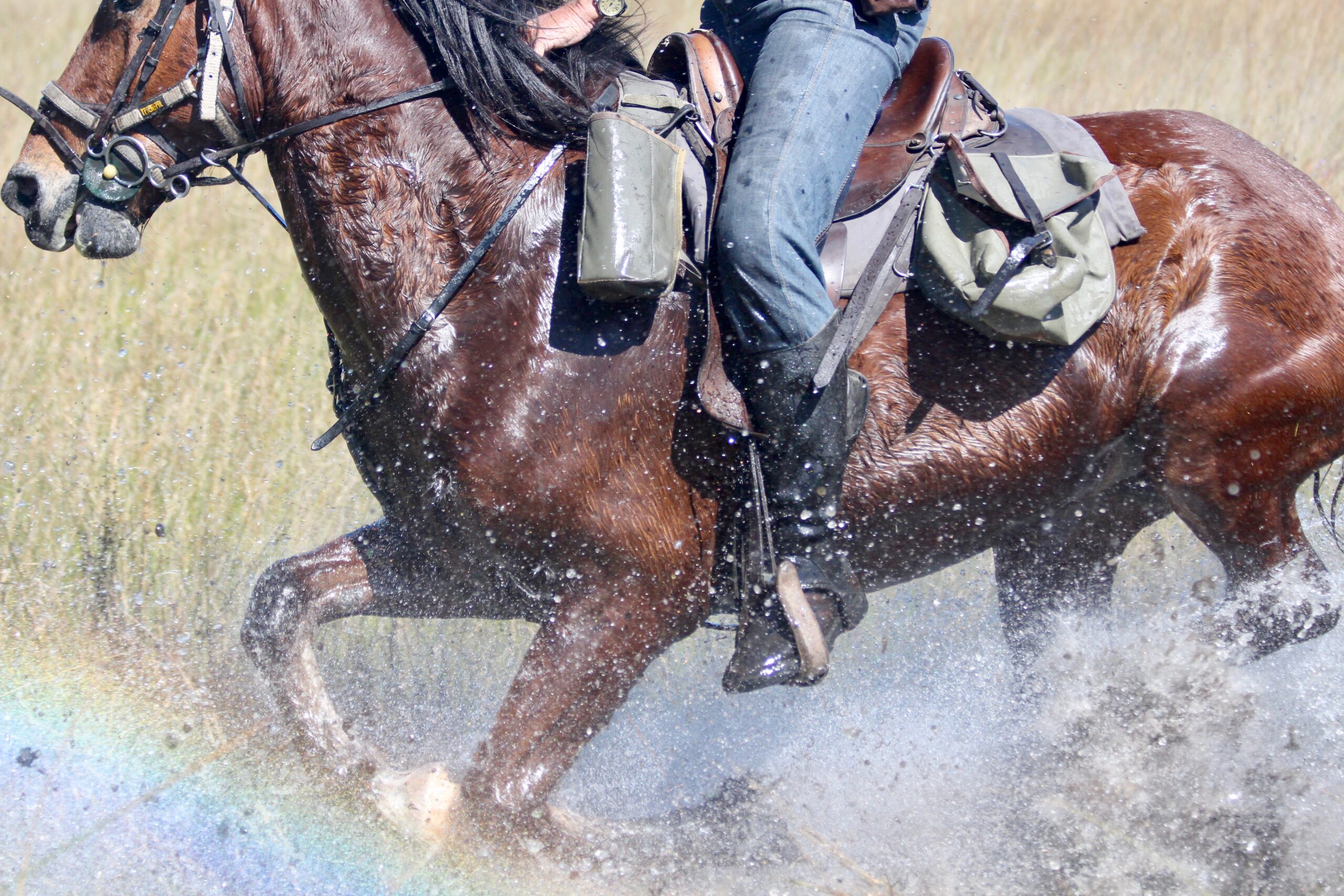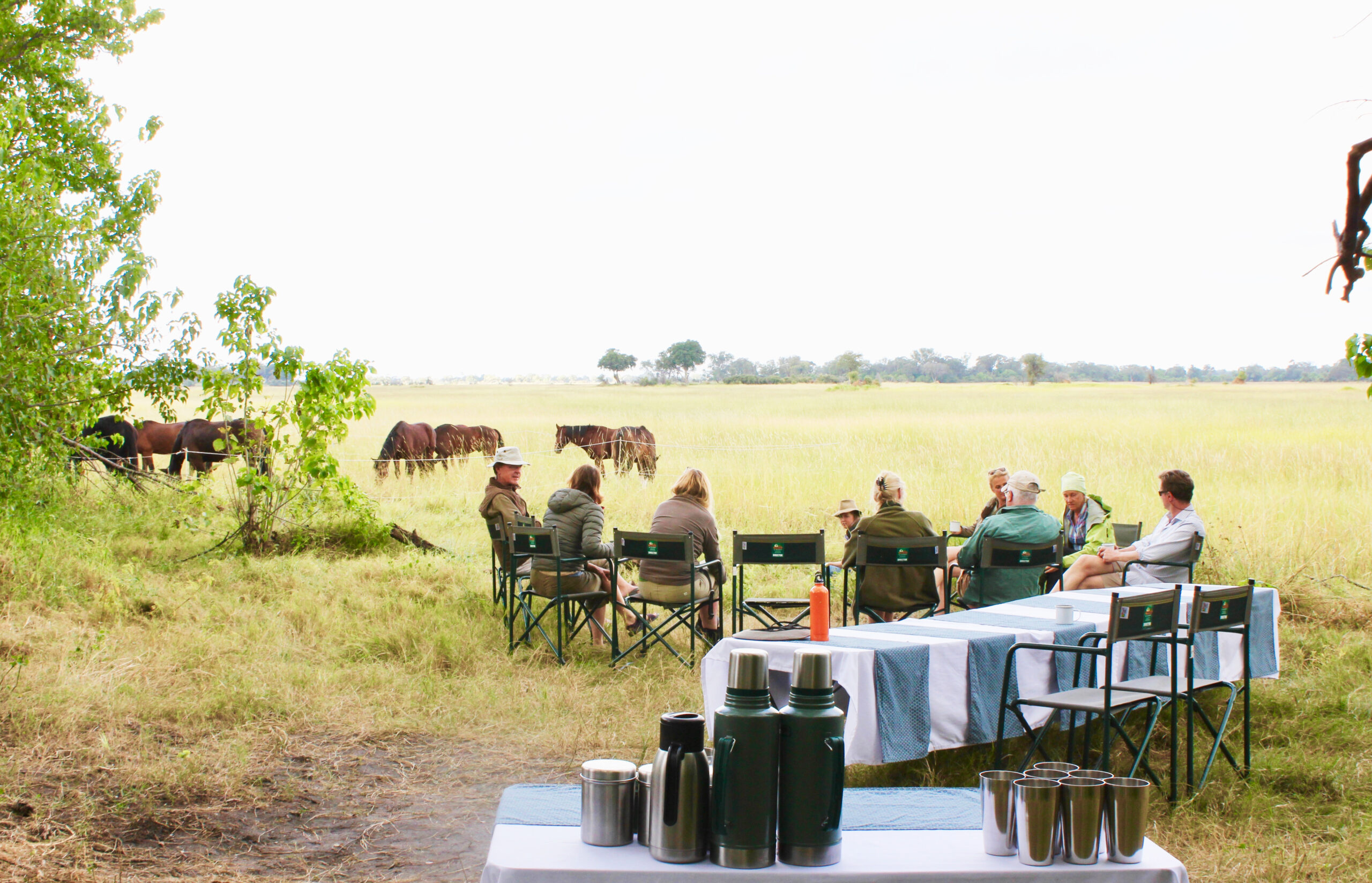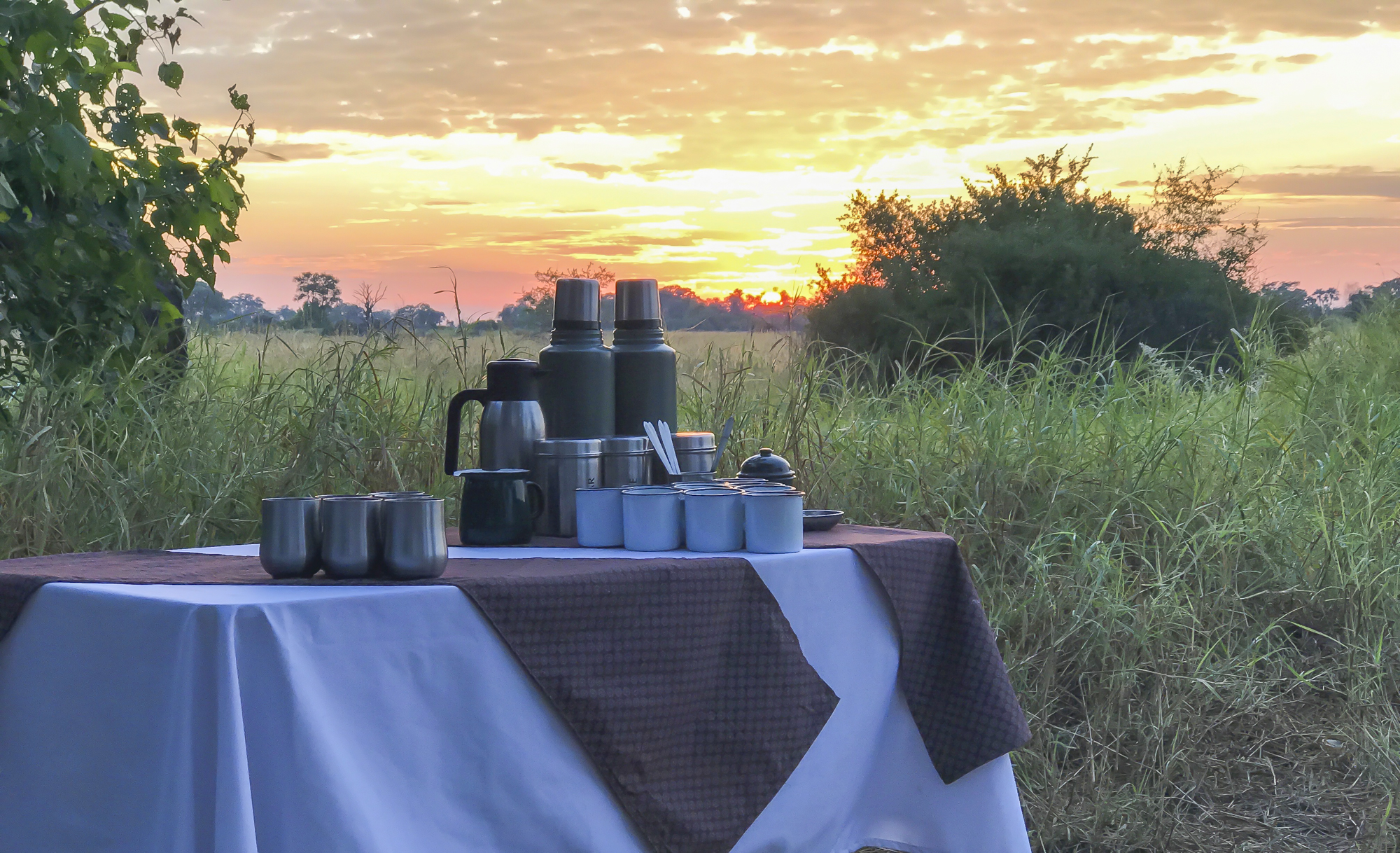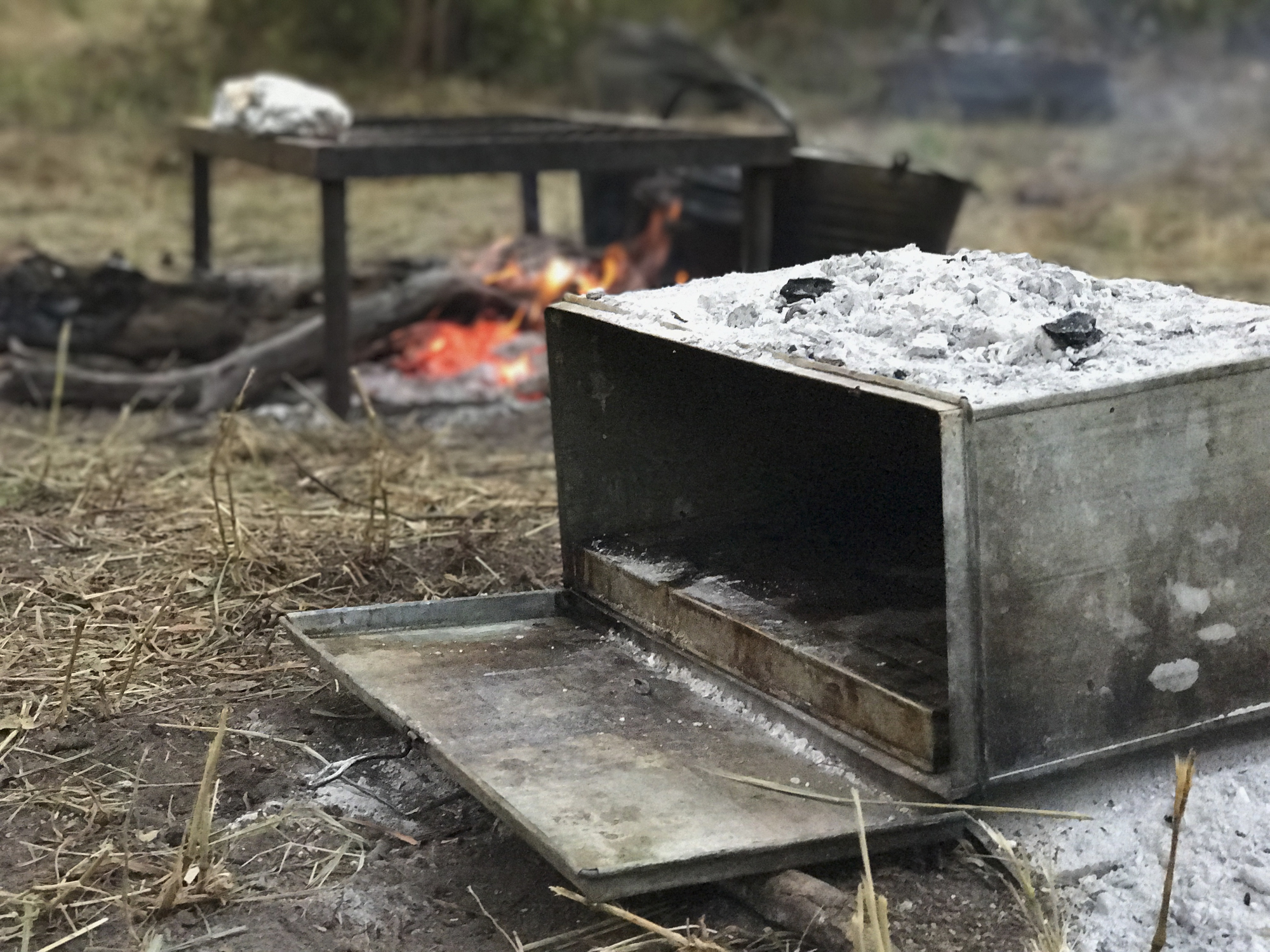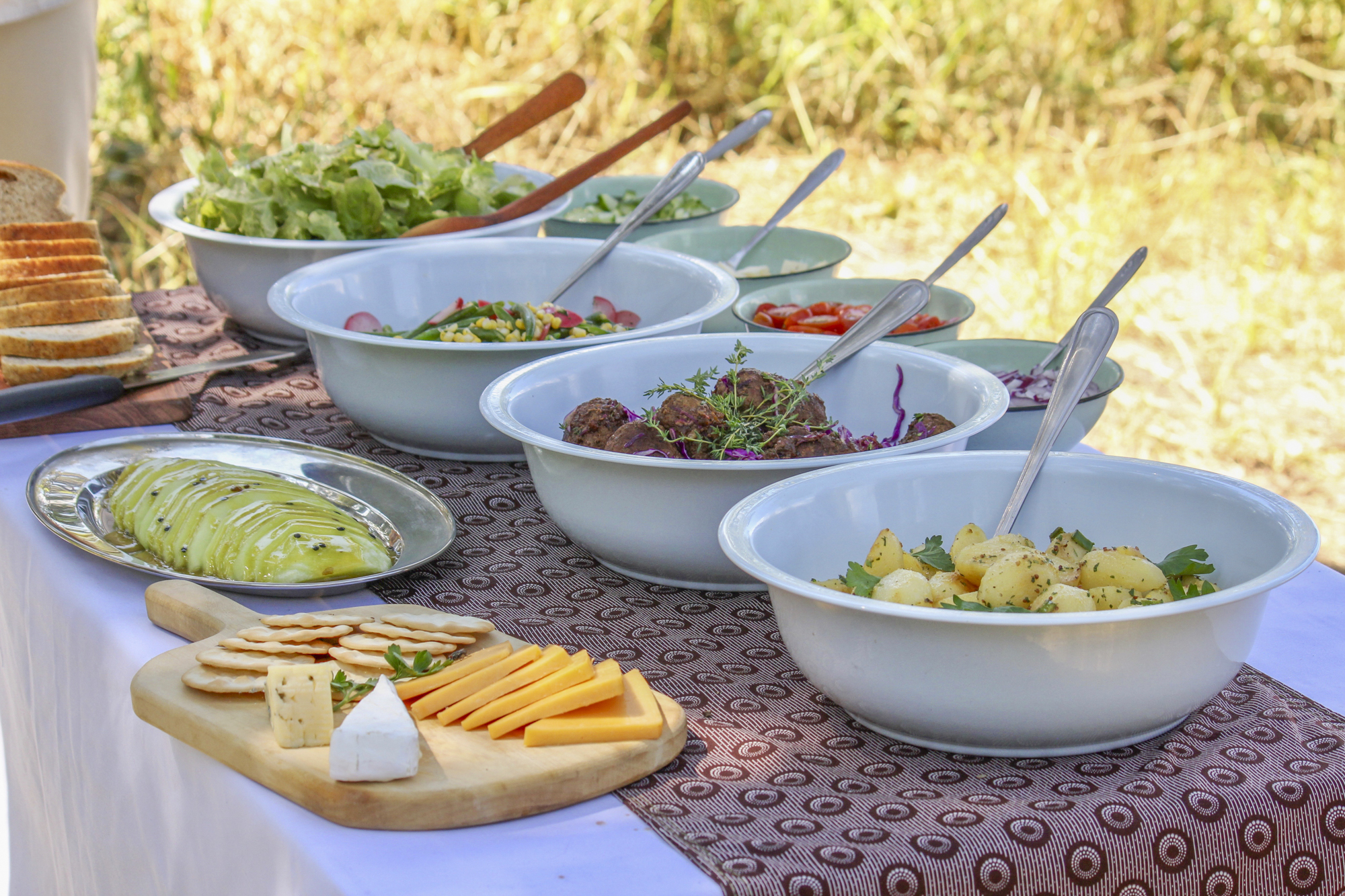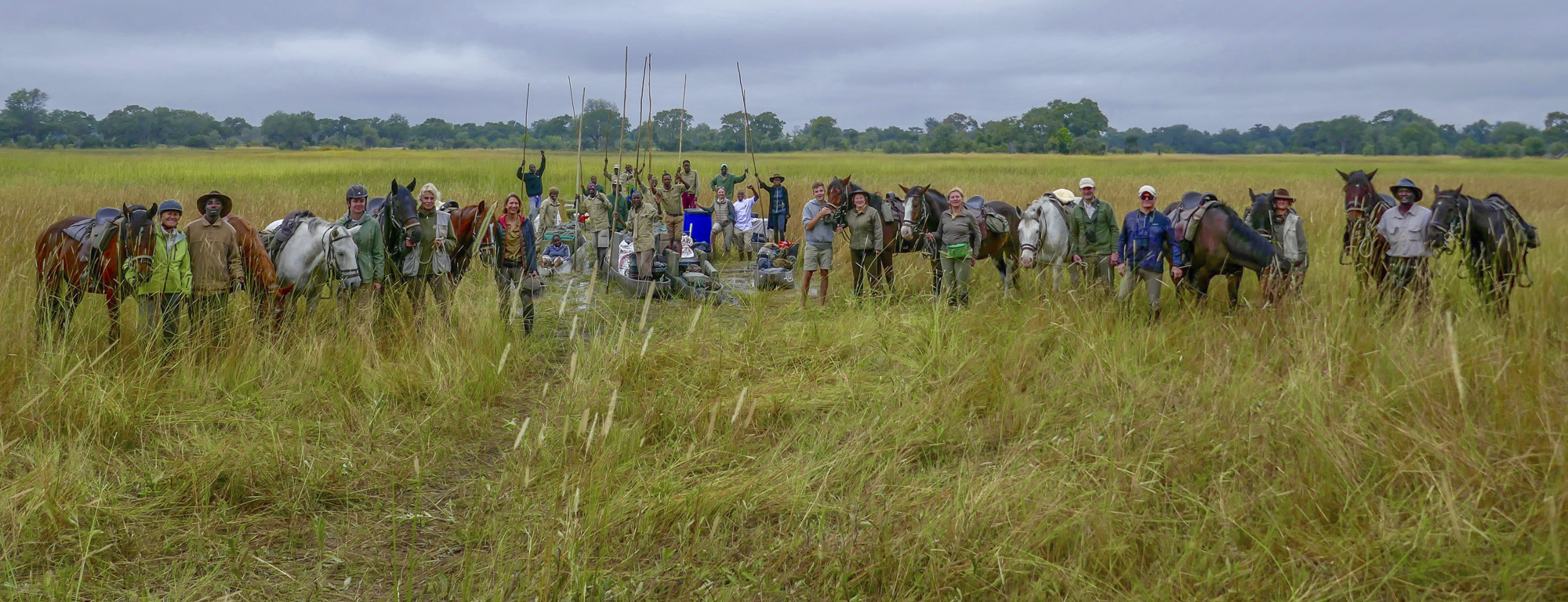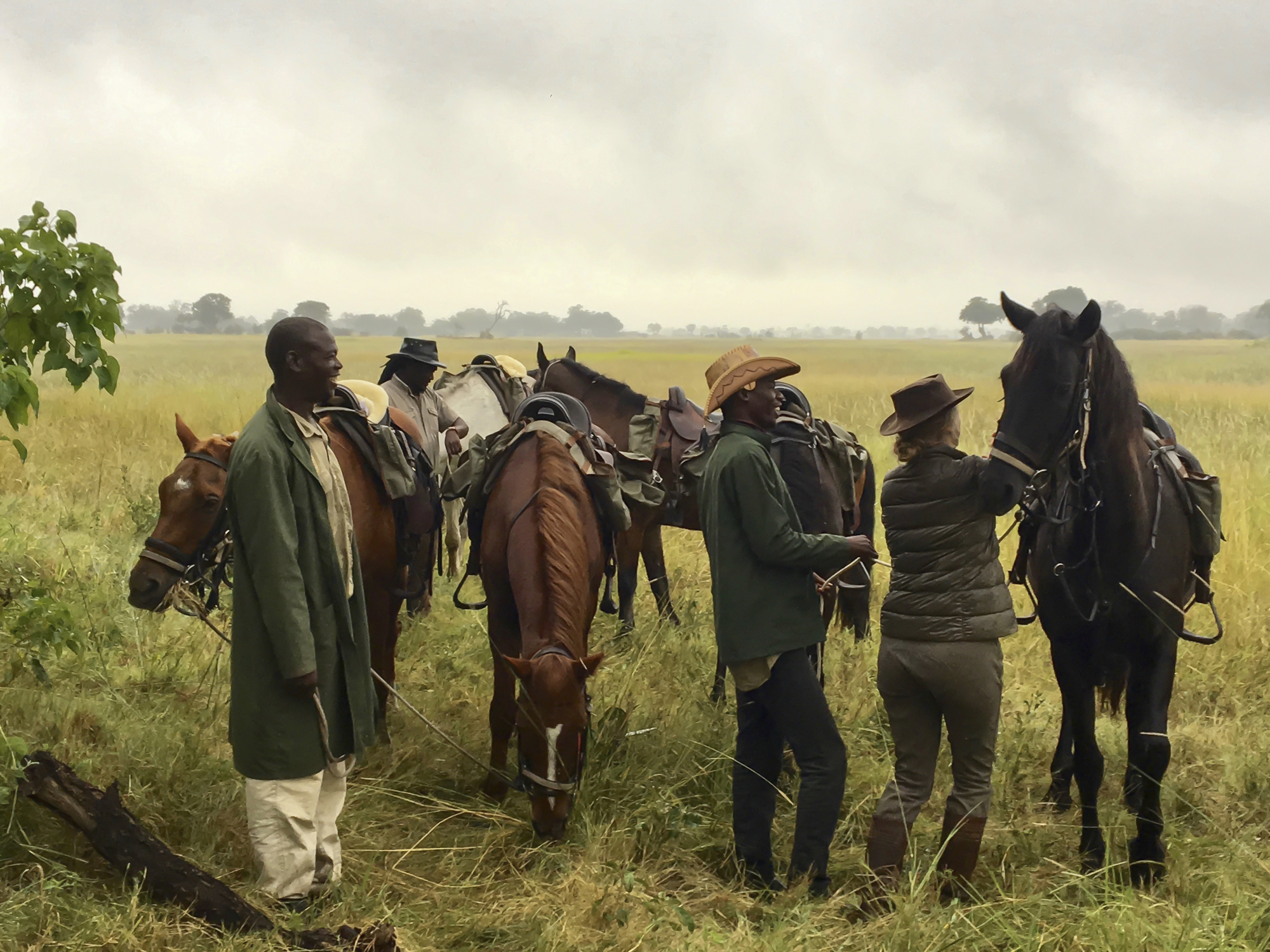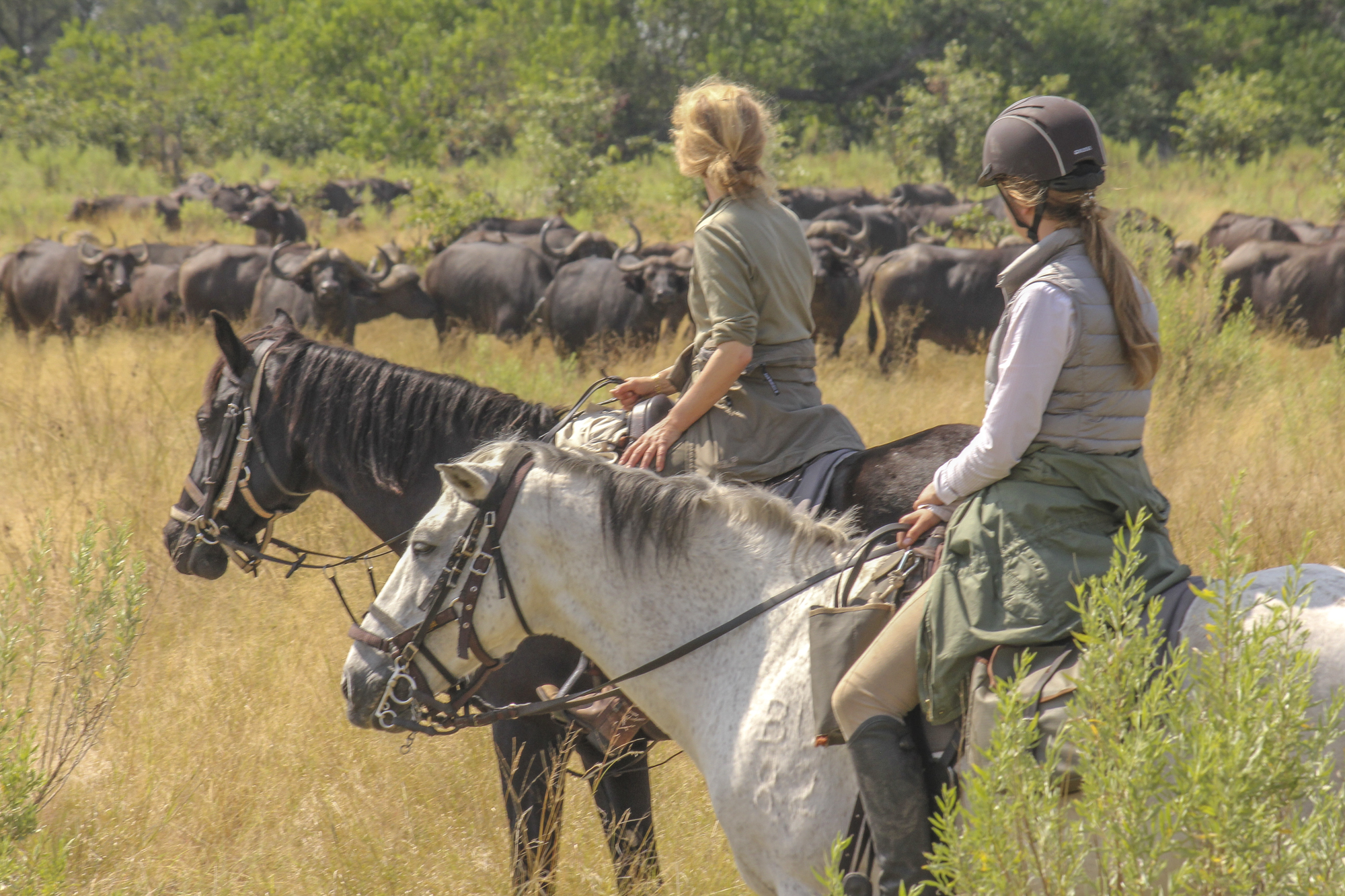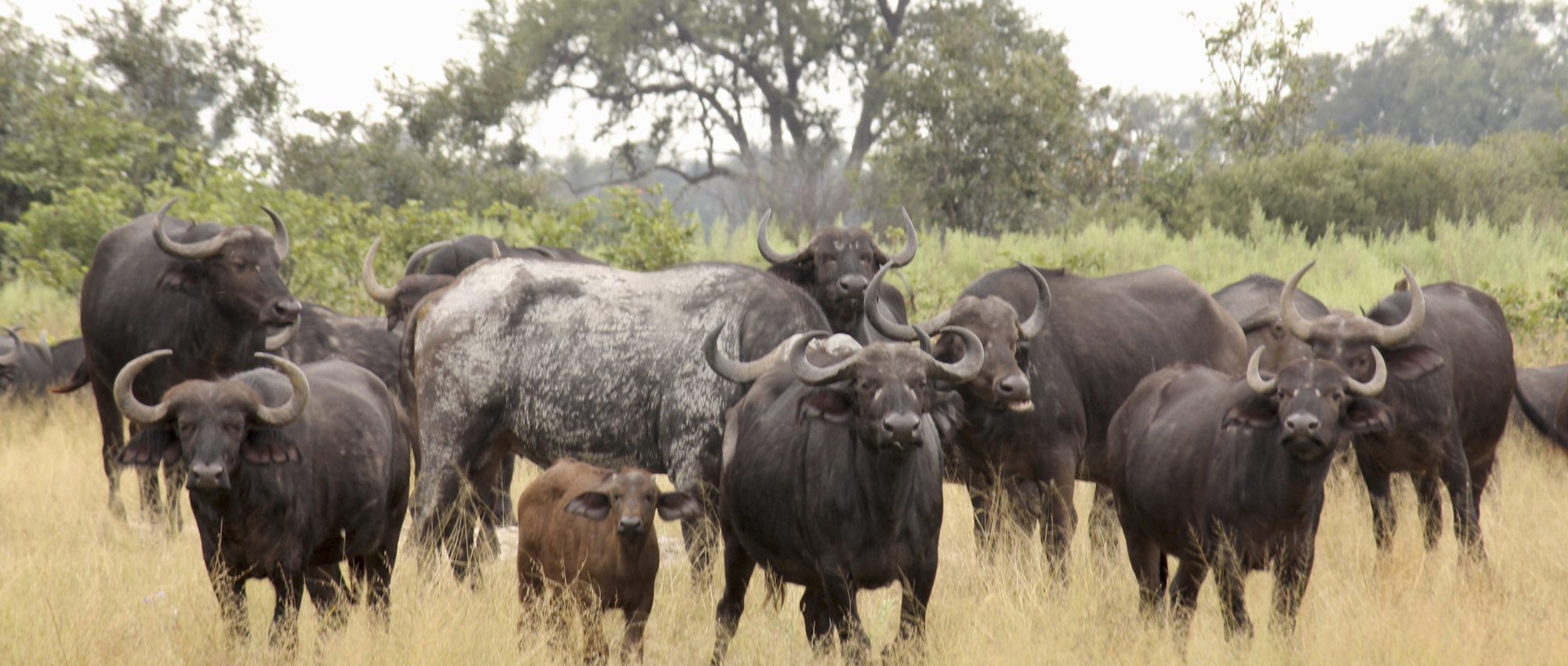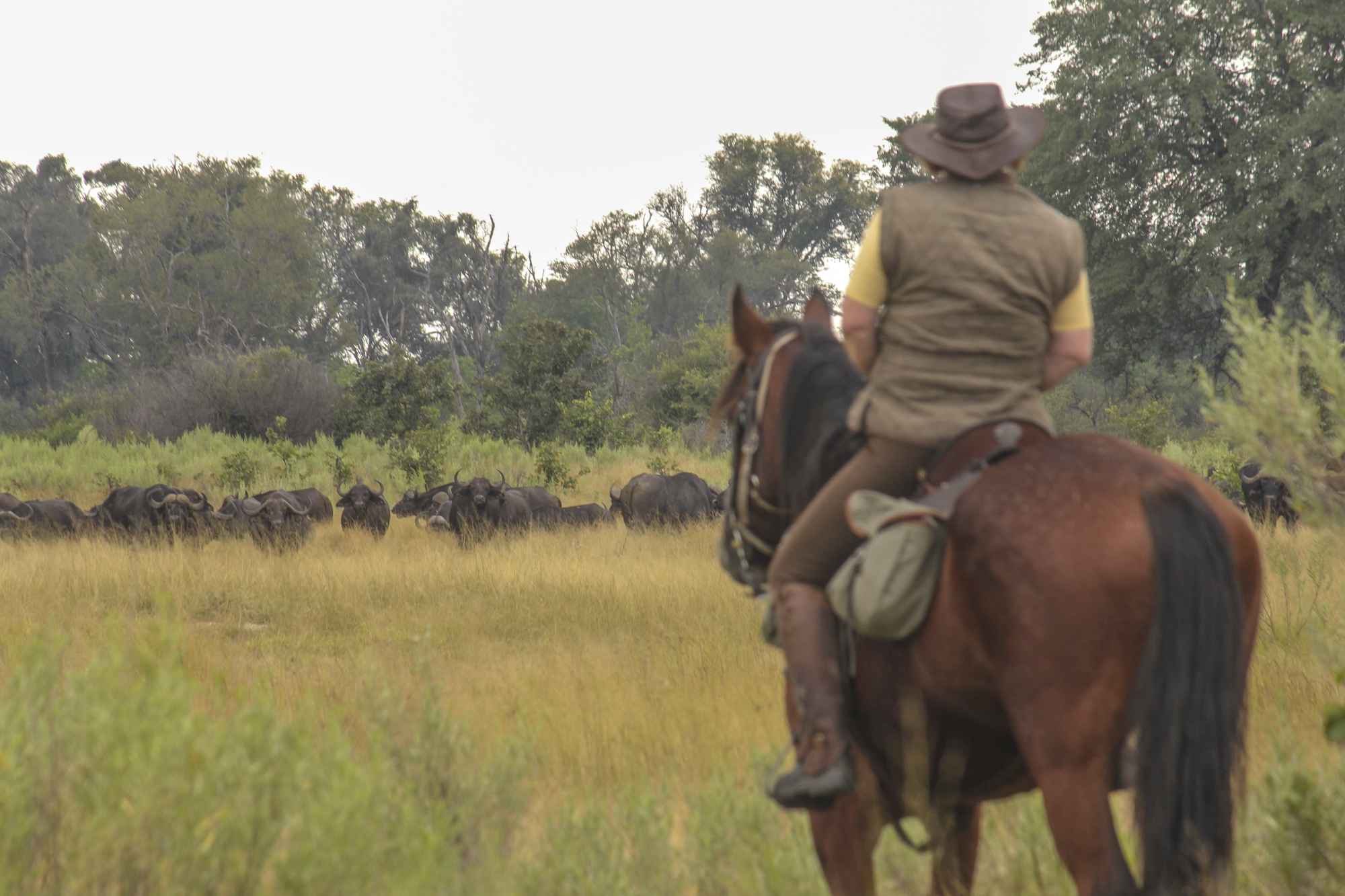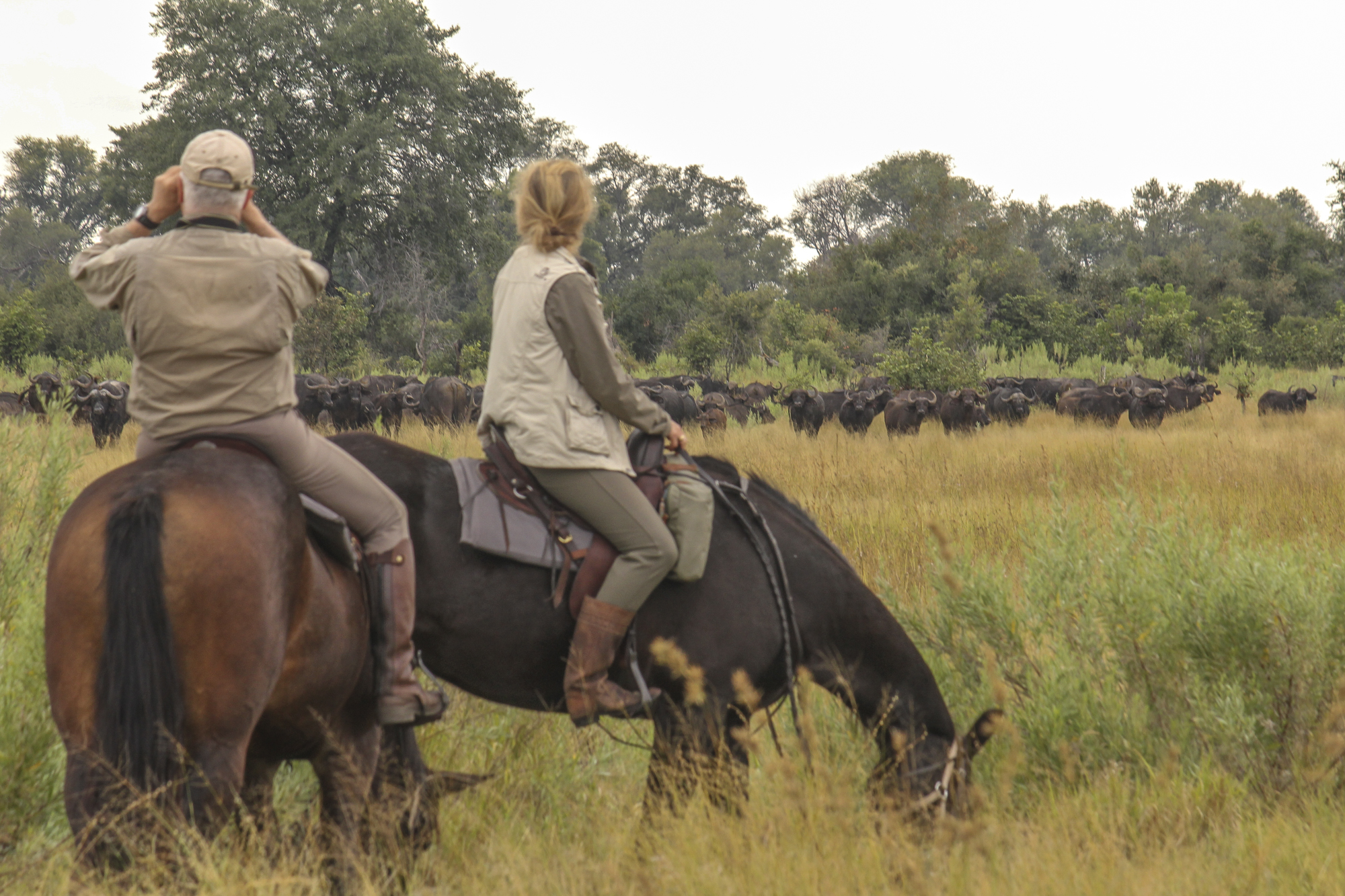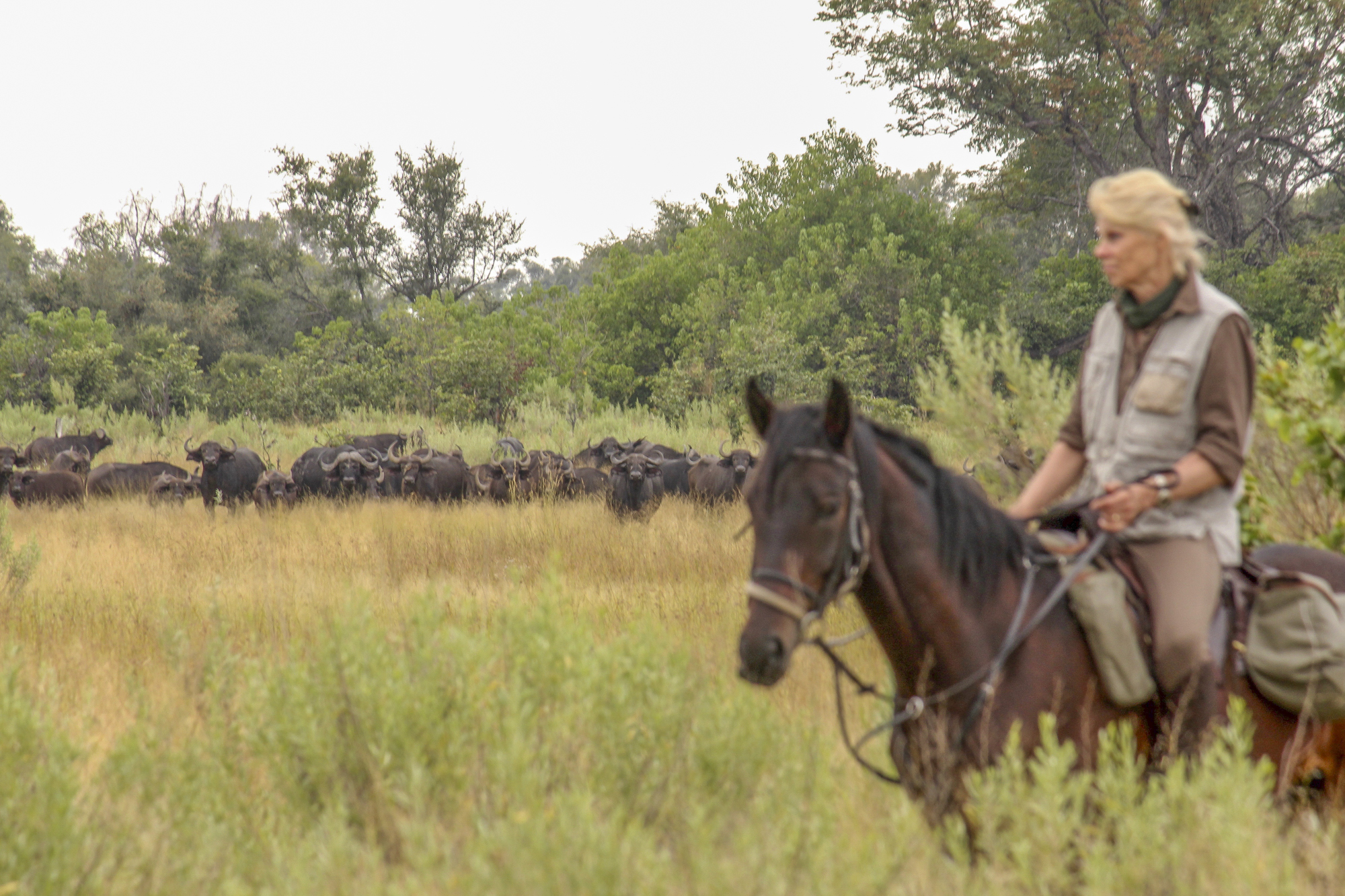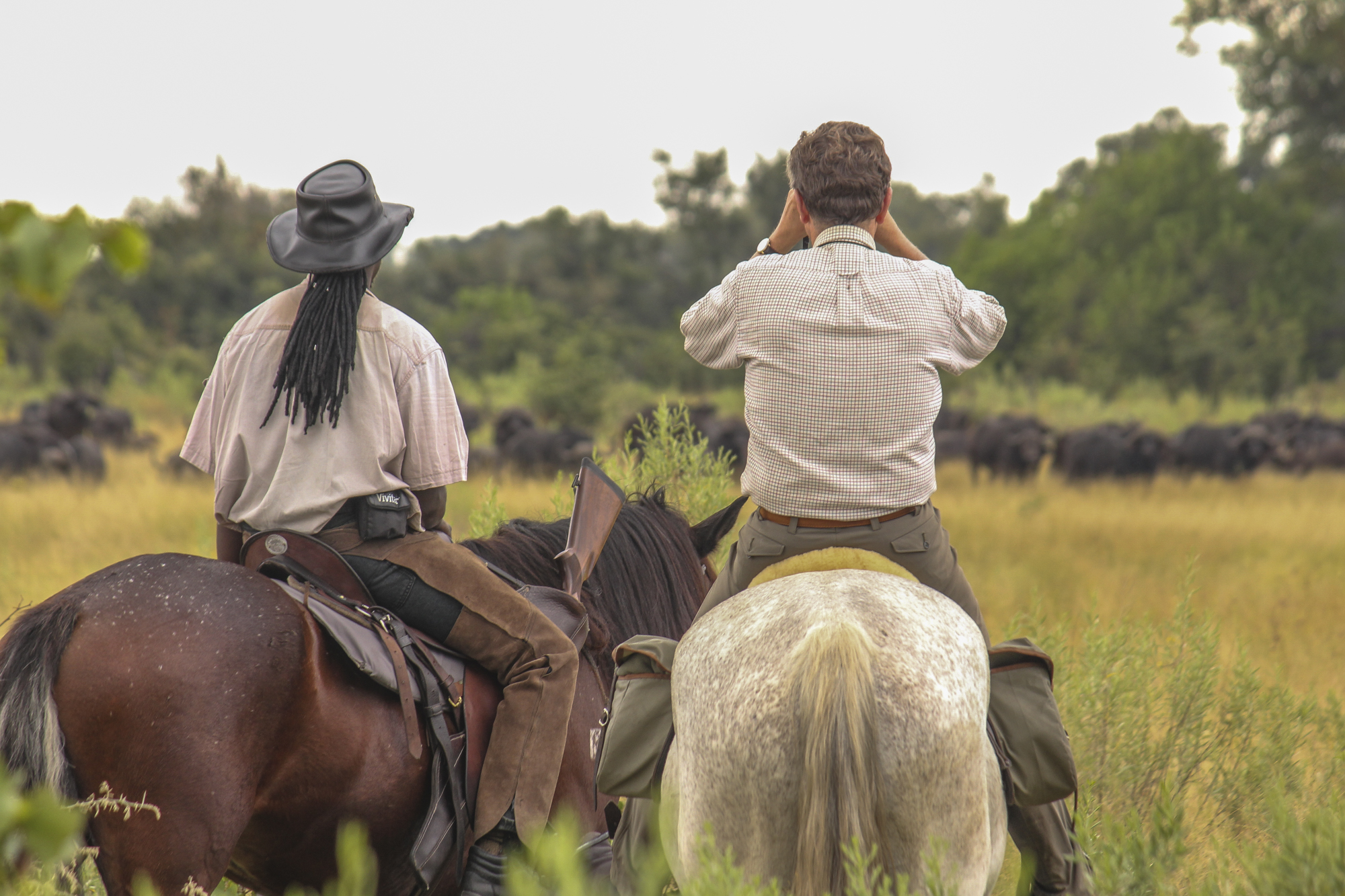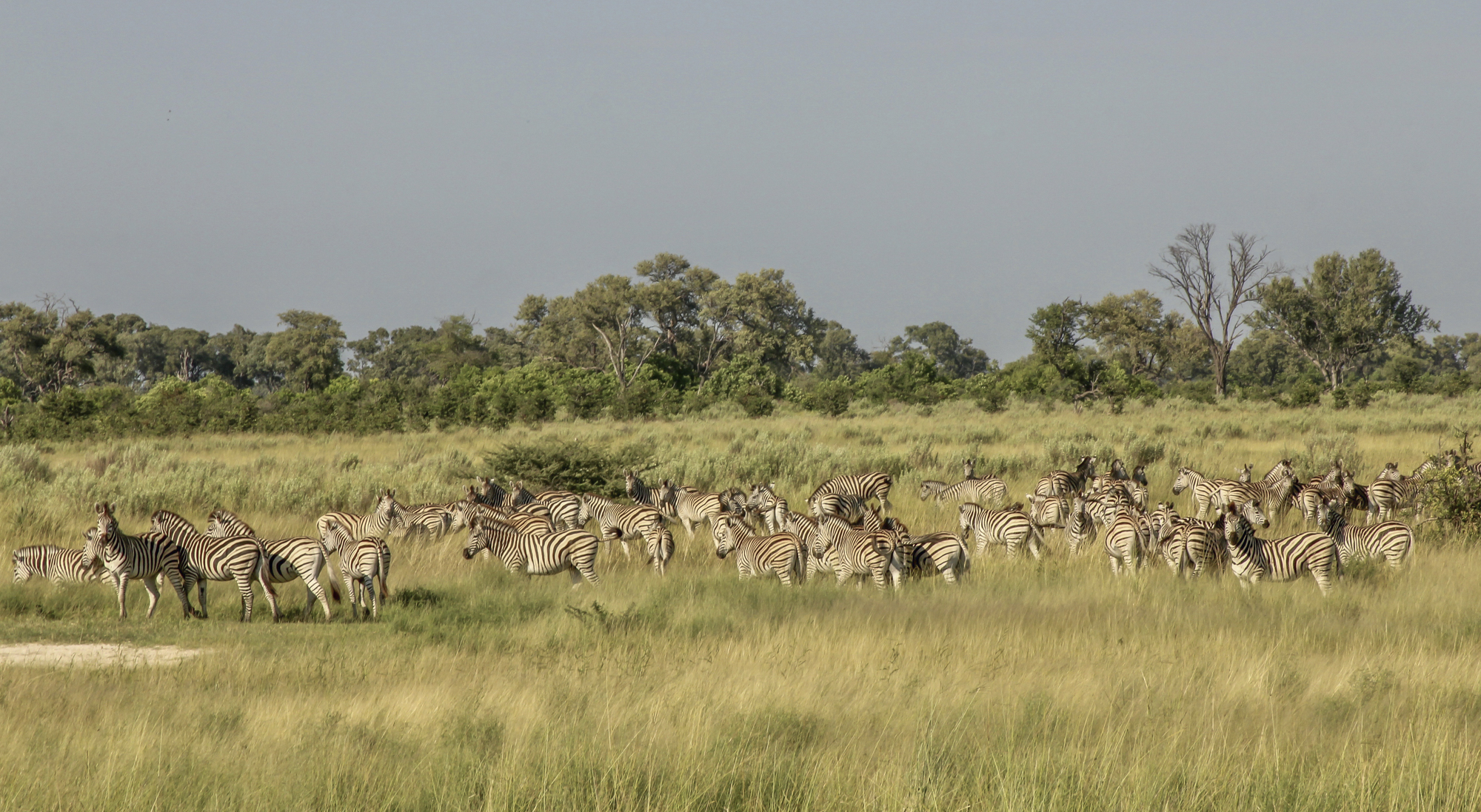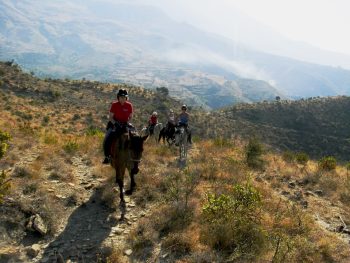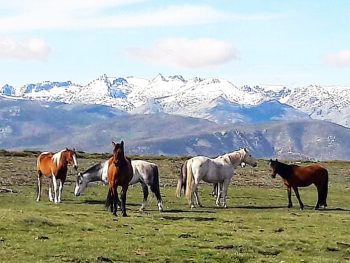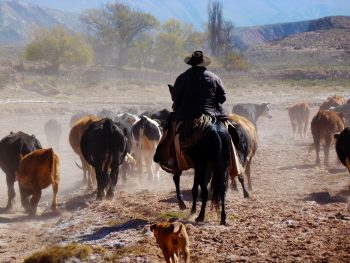Recently declared the 1000th World Heritage Site – the unique Okavango Delta is a horse rider’s paradise. As the floodwaters of the Delta spread southwards the wildlife and birdlife follow offering the opportunity to watch from horseback the legendary wild herds of Africa. This is the only mobile horseback safari in the Okavango Delta.
This Delta Ride is unlike any other! There is no permanent riding camp. Instead a lightweight mobile camp is transported by a flotilla of mekoros (traditional dug out canoes) poled by members of the local community bordering the Delta. And when the water levels are too low for the mekoros a train of pack donkeys (with their handlers again from the local community) takes over.
The emphasis is on the experience, the beauty of the Okavango and top level guiding. The riding and the horses are fabulous, the wildlife is incredible and the food (cooked over a log fire) is fantastic. The camp is extremely comfortable in lightweight tents with standing room, fully made up stretcher beds, bucket showers and short drop toilets.
There are no vehicles involved and this along with working in partnership with the local community offers a genuinely “Green” experience. This is one of the most environmentally friendly safaris around.
From Maun Airport it is only a 30 minute drive to the southern end of the Okavango where the safari begins. The Delta proper is demarcated by the “buffalo fence” and here you find the horses waiting.
Your luggage will be loaded onto mekoros and transported to camp whilst you mount up and venture on horseback into the unknown!
Departure & Return Location
nearest airport Maun, Botswana
Most guests reach fly to Maun via Johannesburg. Twice-daily flights operate between Maun and Johannesburg on Air Botswana or South African Airways (operated by SA Airlink). These flights normally depart Johannesburg for Maun around 10 am, so please allow for the minimum connecting time between flights.
On your return journey, it is advisable to book the later flight out of Johannesburg (after 8pm) to minimize the risk of missing your onward connection.
It is also possible to access Maun via Victoria Falls, Zimbabwe or Livingstone, Zambia. This will enable you to combine your horseback safari with some of Africa’s major tourist experiences, should you so wish.
For those wanting to visit Victoria Falls before or after their safari with us, it is possible to fly directly from Maun or Camp Kalahari (Kalahari Ride) to Kasane, a 90-minute scenic charter flight on a light aircraft over the Kalahari and Okavango Delta. Kasane is located in Botswana and from here a one-hour road transfer can be arranged to either Livingstone, Zambia or Victoria Falls, Zimbabwe.
Date and Rates
Price from $3,730.00 for 7 nights/ 6 days of riding | 4 to 6 hours riding per day
(contact us about dates and availability- rides go throughout the year at set times)
Price Includes
- accommodation and full board
- horses and guiding
- All transportation in destination location
Price Excludes
- all flights
- tips
- any private expenses
There is no set itinerary, with the location of the camp dependent on water levels, wildlife movements and the length of the safari (the longer the safari the more likely the camp is to move). However every location is exquisite, there being a plentiful choice of shady tree-lined islands.
A typical day starts with an early wake-up call and a light breakfast around the camp fire as dawn breaks. The morning is spent on horseback, following ancient elephant trails, searching for a variety of wildlife, enjoying the prolific birdlife, and cantering through the recently flooded plains.
Herds of buffalo may be in the vicinity, giraffe often saunter by and red lechwe splash through the water along side , whilst kudu peer out from the thickets.
We return to camp for lunch and siesta in the dense shade of the giant jackalberry or leadwood trees.
A meditative evening ride is spent listening to the sounds of the bush and the snorting and splashing of the horses, before returning to camp for dinner under the stars.
Occasionally guests (and horses) may need to rest, which is the perfect opportunity for a tranquil ride in a mokoro, the traditional way of traversing the glittering, lily-lined lagoons and waterways.
It is a chance too, to venture out on foot to appreciate the smaller creatures that inhabit the bush – or to learn some rudimentary tracking skills.
No two days are the same, but every day is astonishing and joyous, and it is a privilege to share this unique and untouched wilderness with you.
The horses range in breeds from sporty Thoroughbred X, to hardy Apaloosas and tough African boerperds, as well as some lovely Shire X, Fresian X and wonderfully-tempered Botswana Kalahari ponies – perfect for kids!
The horses range in size from 12 hh to 17 hh, including weight carriers which can cater to riders of up to 95kgs.
Under the guidance of the permanent and qualified Equestrian Stable Manager, our team of 15 guides and grooms take pride in the well being of each horse, ensuring that they are well schooled, (but not over-worked) and well-rested between the trips, hence each guest will have the opportunity of riding several different horses during their stay.
Great care is taken in matching horse to rider. We ask our guests to respect each of our horses and treat them as they would their own.
- Weight limit: 14st 13lbs (95 kg) (209 pounds)
- Usual maximum: 8
- Climate: Floods normally arrive in this region around May and recede October. Daytime temperatures are warm but evenings can be cold. Unlikely to rain. November – March is hotter with possible thunderstorms.
- the perfect safari for those looking for a remote experience simple bush camps and an authentic ‘African Safari’
- no vehicles :your luggage goes by mokoro or pack donkey onto its destination of a secluded camp on a beautiful remote island in the Delta.
- The camp is made up of comfortable lightweight tents with standing room, stretcher beds and full linen bed rolls. There is one bucket shower and one short drop loo per four guests. You are likely to move camp approximately three times during the 7 night, set date safaris (subject to weather conditions and game movements). No electricity is available however solar/battery powered lights are provided in the tents.
- These rides are usually guided by David Foot who has over 25 years of experience leading safaris throughout southern and central Africa.


